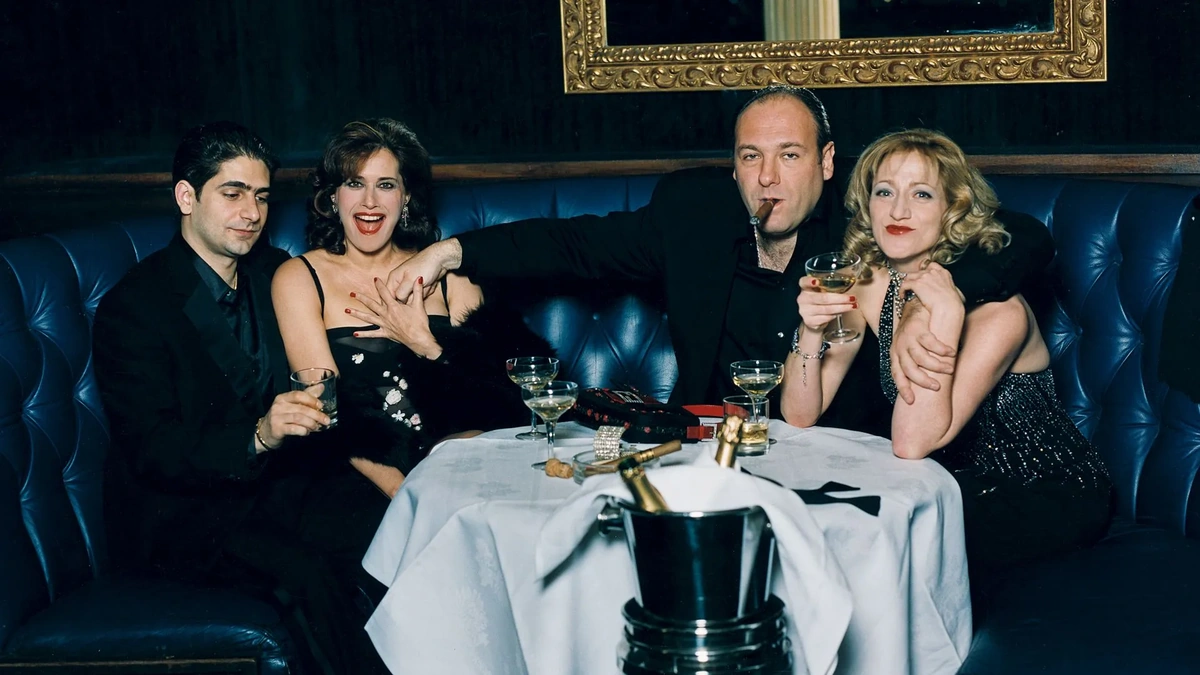Okay, let’s be honest. We’ve all seen the memes, heard the quotes, maybe even binged the show a couple of times. But why does The Sopranos – a show about a mob boss in therapy – continue to resonate so deeply, even decades after its debut? It’s not just about the violence or the wisecracks. It’s about something much deeper, something that gets at the messy, complicated heart of the American experience. This isn’t your typical TV show analysis; we’re diving into the ‘why’ behind the Sopranos’ enduring power. So, grab a cannoli and let’s get started.
Tony Soprano | The Anti-Hero We All (Secretly) Understand

Here’s the thing: Tony Soprano isn’t a good guy. He’s a murderer, a cheat, and a generally terrible person. And yet, we can’t help but find him fascinating. Why? Because, in a weird way, he reflects the contradictions within all of us. He’s struggling with family, work, and his own demons – just like the rest of us. But his demons involve, you know, managing a New Jersey crime family and whacking people. His search for meaning, his existential dread – that’s the hook. That’s the relatability. And it’s a masterclass in character development, showing how even the most flawed individuals can elicit empathy.
Beyond the Mafia | Family, Therapy, and the American Dream
The Sopranos wasn’t just a mob drama . It was a show about family dynamics, mental health, and the pursuit of the American Dream – even if that dream was twisted and corrupted. The therapy sessions with Dr. Melfi weren’t just plot devices; they were a window into Tony’s soul, revealing his vulnerabilities and his attempts to understand himself. What fascinates me is how the show explored the idea that even those who seem to have it all can still be deeply unhappy. It challenged the notion of success as a purely material thing, suggesting that true fulfillment is far more elusive. This is why the show gained popularity for exploring existential themes.
The Ending | A Masterclass in Ambiguity (That Still Drives Us Crazy)
Let’s talk about that ending. The abrupt cut to black. The endless speculation. The frustration. David Chase, the show’s creator, knew exactly what he was doing. He didn’t want to give us a neat, tidy resolution. He wanted us to keep thinking, to keep debating, to keep questioning. And boy, did it work. That ending perfectly encapsulates the show’s central theme: life is messy, uncertain, and often unsatisfying. According to numerous discussions in online forums, the ending controversy persists. The sudden cut to black signifies the unpredictable nature of life and death, leaving the audience to ponder Tony’s fate and the ambiguous nature of existence.
The Enduring Legacy | How The Sopranos Changed Television
The Sopranos wasn’t just a great show; it was a game-changer. It paved the way for a new era of complex, morally ambiguous television. Think about shows like Breaking Bad, Mad Men, or The Wire – they all owe a debt to Tony Soprano and his crew. But it’s not just about the quality of the writing or the acting. It’s about the show’s willingness to take risks, to challenge conventions, and to explore the darker side of human nature. And it was the first cable TV show to win an Emmy for outstanding drama series. The show set a new standard for TV dramas, influencing the themes and character development we see today.
So, there you have it. The Sopranos continues to captivate audiences because it’s more than just a show about gangsters. It’s a show about us – our hopes, our fears, and our struggles to make sense of a world that often seems senseless. And that’s a legacy that will endure for years to come. The series finale solidified the show’s status as a landmark in television history, sparking endless debates and interpretations. I find this to be one of the most important themes, and it links back to the complexities of relationships and identity that are deeply ingrained in the show’s plot lines. It is also a landmark series about a crime boss that is still well-remembered and influential.
FAQ About The Sopranos
What made The Sopranos so groundbreaking?
Its complex characters, morally ambiguous storylines, and willingness to explore difficult themes set a new standard for television drama.
Why is the ending so controversial?
The abrupt cut to black leaves Tony’s fate uncertain, sparking endless debate and interpretation.
Is The Sopranos worth watching today?
Absolutely. Its themes of family, identity, and the American Dream remain relevant and thought-provoking.
Where can I watch The Sopranos?
It’s available on HBO Max and other streaming platforms.
Who was Tony Soprano’s therapist?
Dr. Jennifer Melfi, played by Lorraine Bracco.
How did The Sopranos impact other shows?
It paved the way for complex, character-driven dramas like Breaking Bad and Mad Men.




